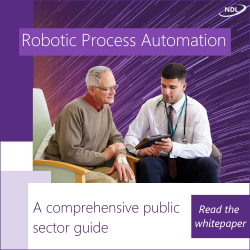
Colleges and universities should explore but also show caution over the use of generative AI, according to a new report from Jisc.
The membership organisation, which provides technology services to the sector, has published its third report on relevant developments in AI, including a focus on how generative AI is developing.
It says the technology is already having a significant impact on education, with the scope for writing plausible sounding text on any topic, generating answers to a range of questions, and proving capable at tasks such as text summarisation.
But it comes with limitations such as generating plausible but incorrect information, and a limited ability to explain the sources of information. In addition, the free version of ChatGPT, the most widely used generative AI application, has only been trained on information up until September 2021.
There are also concerns about whether the technology produces biased and unacceptable output, its environmental impact, security and privacy issues, and the danger of digital inequity
Fast moving
“We are seeing a wide range of ideas for how to use generative AI in learning and teaching,” the report says. “It’s worth remembering at this point that it is a fast moving space and many of the tools are still under development or at the beta stage.
“Whilst exploration makes a lot of sense, it’s also worth noting that individuals shouldn’t feel the need to rush into using it in teaching – things are changing rapidly, but now is the time to explore and start planning.”
The report cites a number of uses based on a series of student forums. These include formulating ideas such as for the structure of essays, providing feedback on writing, using it a research tools and generating images. All of these come with concerns in line with those outlined above.
“If used appropriately, generative AI has the potential to reduce staff workload, for example by assisting with tasks such as lesson plans, learning material creation, and possibly feedback,” it says. “The key words here are ‘appropriately’ and ‘assisting’.”
Challenges and opportunities
Heidi Fraser-Krauss, Jisc’s chief executive officer, commented: "Generative AI poses substantial challenges to education, not least to assessment, but it also provides opportunities for supporting learners and learning.
“Unsurprisingly, it has also acted as a stimulus for the education sector to examine all aspects of what and how it teaches and to reevaluate assessment practices, things that have remained largely static for a very long time."
On a wider front, the report says there are now strong foundations to enable further adoption of AI in colleges and universities, and to face the challenges and opportunities involved.
Among the examples it cites are Bolton College’s Ada chatbot and FirstPass platform for teacher feedback, adaptive learning with Century Tech at Basingstoke College of Technology, the Beacon digital coach in Staffordshire University, and the Taylor digital assistant in the Open University.





